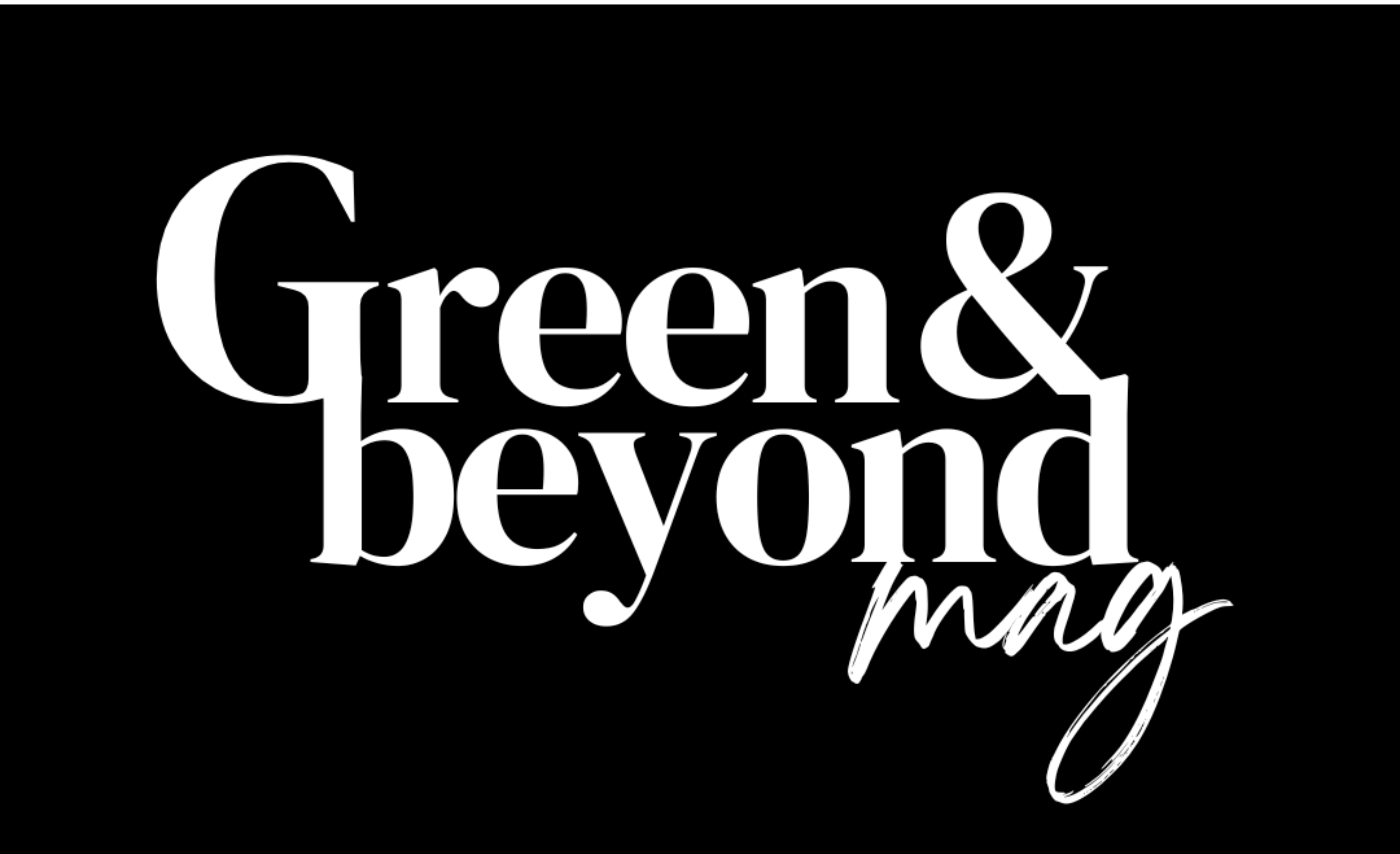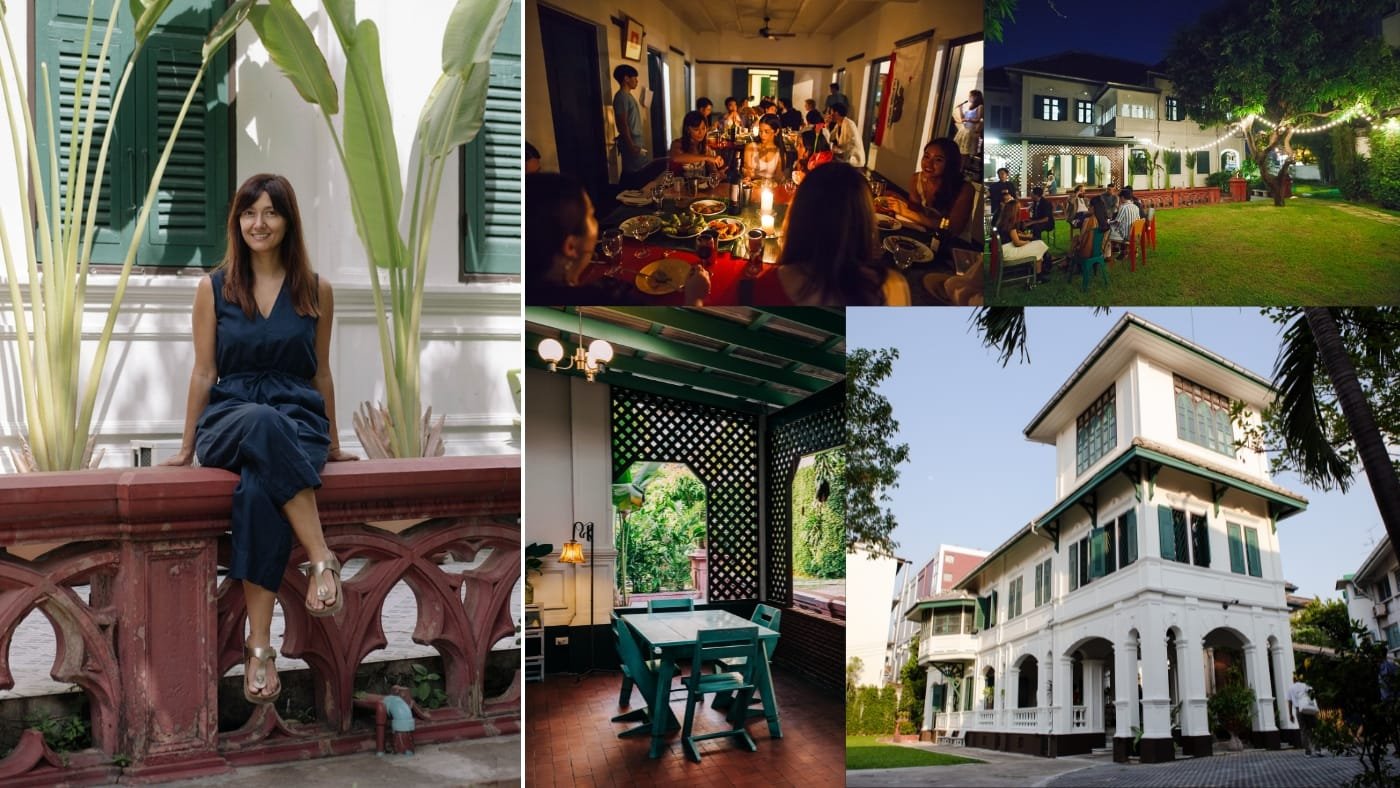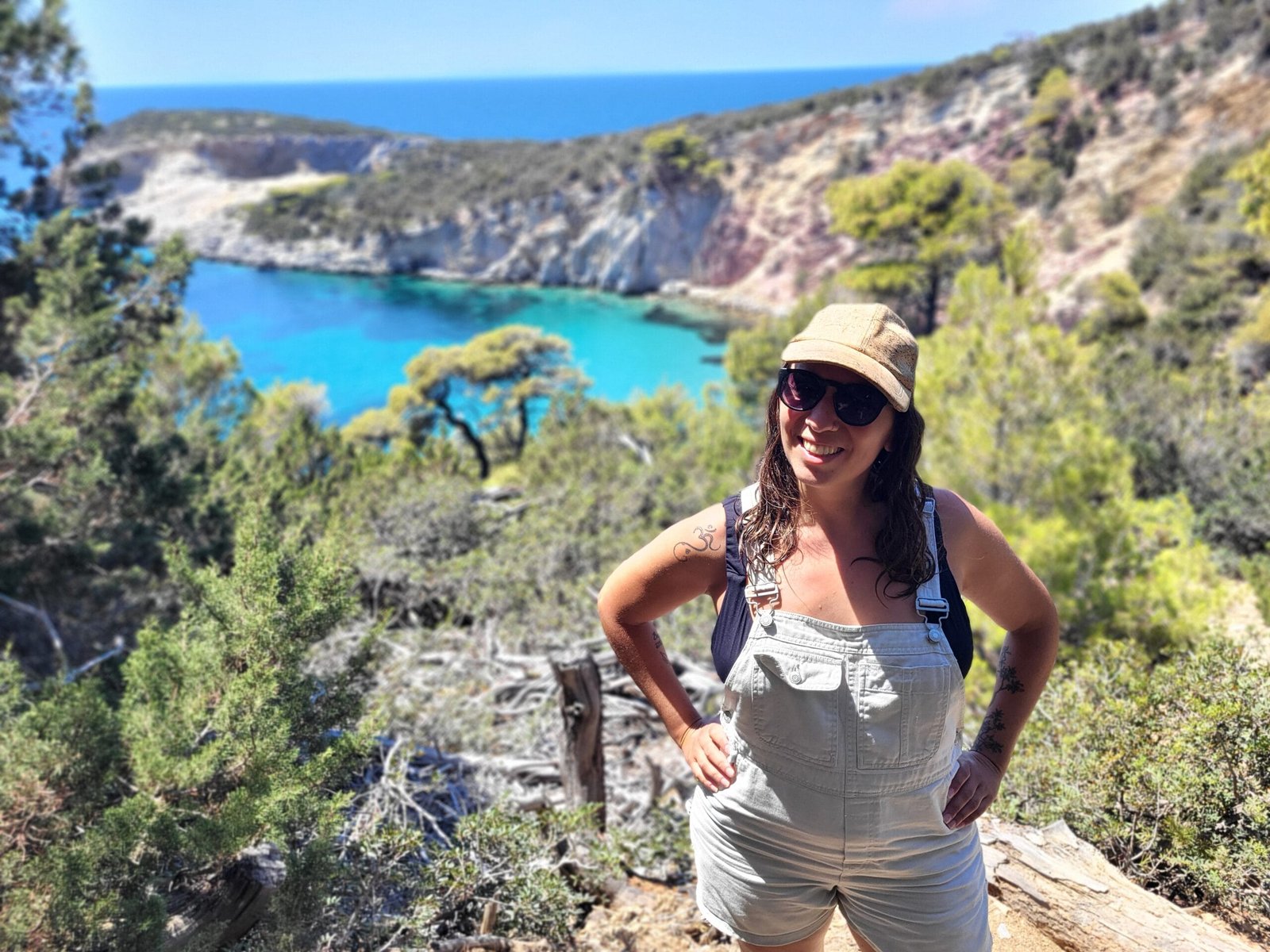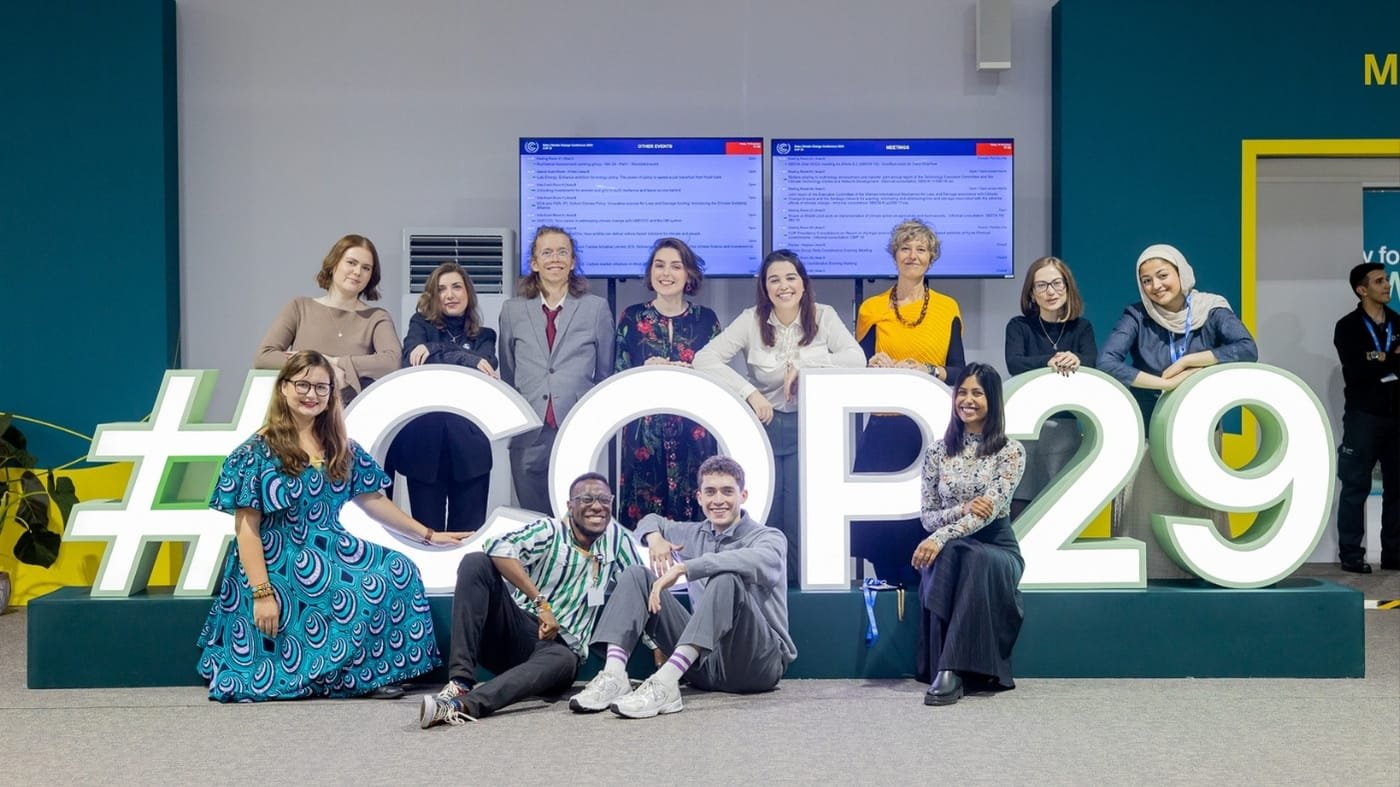What do you do when you learn about a global problem? A problem that affects everything and everyone around us? Climate crisis is such a problem that affects us all, and fast fashion is one of the major contributors to this problem. From the very starting point of the supply chain to the end of the lifecycle of a piece of cloth – fast fashion affects our environment. The vicious business model of fast fashion does not even take care of the very workers who produce their goods. Regenerative agriculture is one of the best solutions that exists as a solution to this problem. From fiber production to animal welfare to social justice, regenerative agriculture ensures everything.
Two creative individuals, thousands of miles apart from each other, were dreaming about finding an effective way to work on this solution. “Regeneration” was on their minds. By the help of the algorithmic magic of technology they found each other out on Instagram. The creation of a new chapter of history started right there – they combined their dreams and started to work on it.
Joëlle Provost and Coco Lee are the co-founders of the Regenerative Gala, an initiative that raises awareness, celebrates the people and process of regenerative agriculture and defines what it means to be regenerative in the 21st century.

Where It All Started
Joëlle is a low impact artist, community builder and urban farmer based in San Francisco who discovered the wonders of Regenerative and Biodynamic farming while volunteering on farms in Italy. Witnessing the earth’s resilience first hand, she felt compelled to move away from monoculture practices and promote carbon drawdown and biodiversity. Joëlle and her husband dedicated years to rehabilitating their own plants and soil, but her passion extended beyond her personal efforts. She wanted to inspire a larger community around climate optimism.
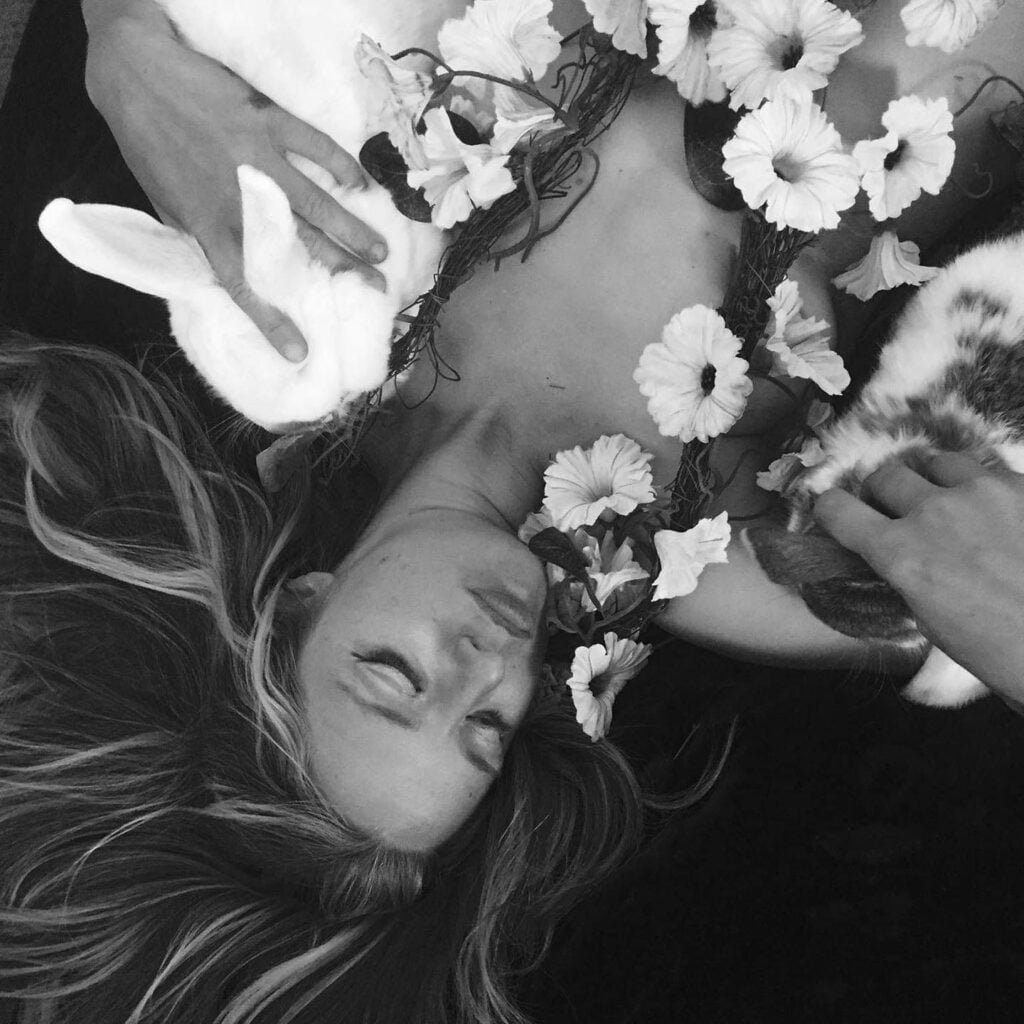
Meanwhile, Coco, who is a regenerative fashion and luxury content creator from Chicago, had been working to promote slow fashion along with ethical and guilt-free consumerism. After discovering the world of Regenerative Fashion and Regenerative Agriculture, she had been actively engaging with the community to educate herself more, when one fine day, she received an Instagram message from Joëlle who had just found her through the hashtag “#regeneration”.

Upon connecting, the two bonded instantly over their shared belief in systemic change and gentle activism, and fell in love with each others’ personalities.
“Coco has an approachable Moviestar presence. I just wanted to be around her. I was honest to god, mesmerized by her vibrant and kind spirit. I admired her sincere interest in changing the world of fashion to one rooted in transparent messaging and ethical practices.”
– Joëlle said about Coco.
Their conversations were filled with hours of dreaming together. “It was so funny; we’d be up late laughing on the phone like we were thirteen years olds. My husband got a little envious of our relationship for a while there.” – she added.
They realized that while many talked about sustainability, no one explored the possibilities of regenerative luxury. They knew they could make a difference.
“I’m not a poker player, but I placed all my bets on Joëlle after chatting with her and discussing the possibilities of our shared vision. We both felt there was a lot of climate negativism going around online that felt repetitive and, honestly, really depressing. Also, there were a ton of creators sharing content on how to reuse old items and repurpose things to extend their use, which is great, but no one was really talking about the possibilities of regenerative luxury. Joëlle is a visual artist and I’m a Creative so we both have a deep need for beauty. After love-bombing each other’s IG pages we sort of fell right into friendship and the rest is history.”
– Coco said.
In this exclusive interview, we dive deeper into how the duo became best friends, and started a revolution together in the field of Regenerative Agriculture and Fashion.
Why were you following that hashtag?
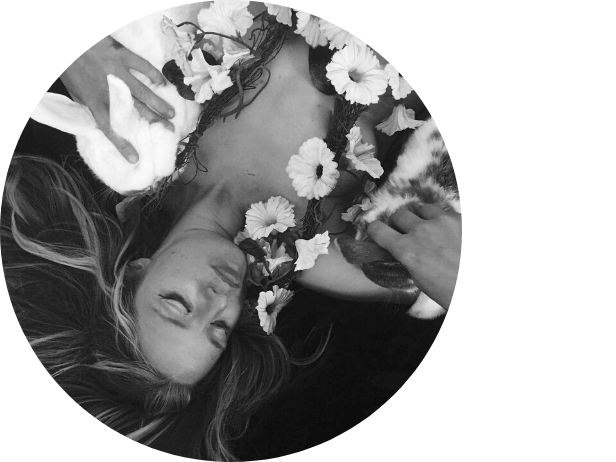
Joëlle: I got into Regenerative and Biodynamic farming after working on various farms in Italy through WWOOF, and through my first hand witness in the earth’s resilience. I knew there had to be a way for the earth to replenish itself, and Regenerative Agriculture did just this; it addressed the urgency to move away from mainstream practices involving a monoculture model and move towards solutions of carbon drawdown through soil and subterranean ecosystem health, and looked at the larger picture of finding ways for biodiversity to flourish as well.
I had been looking for land for the past ten years and finally ran past a big arid lot with a house on it. This comes with an exciting story of me begging the landlady to rent to us- but essentially the rest is history- my husband and I have been learning how to rehabilitate both plants and soil for the past three years on our property. The soil is now rich and alive with bugs and worms, whereas before it was just dirt- lifeless and arid. I have been deeply fascinated in inspiring others through my own personal acts, but felt the drive to create a larger community around what we call climate optimism.

Coco: A couple of years ago I was introduced to regenerative agriculture and began to learn about regenerative fashion. It was like falling down a rabbit hole and confronting a new version of myself. I wanted to learn more and be connected to this new community so I revamped my social media and decided to focus on individuals interested in this niche topic – as well as a few other related ones.
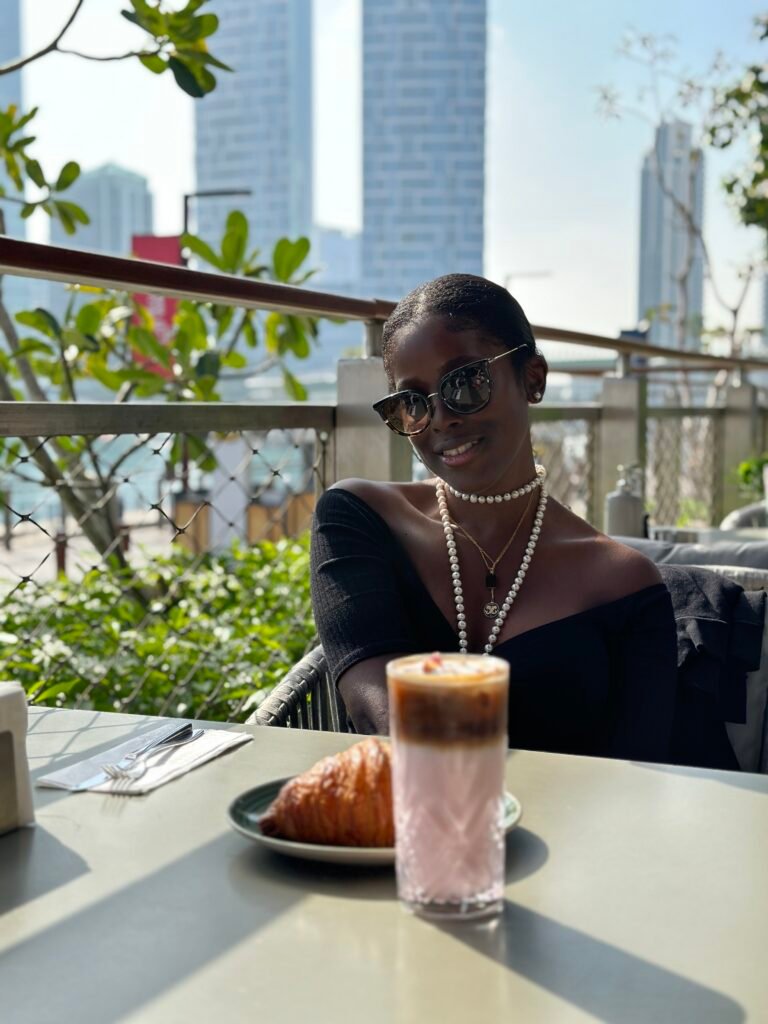
What inspired you to work in this niche and launch a movement like “We Are The General Public”?

Joëlle: To me, nothing has felt so serendipitous in my life to date. One day, in February of 2022, I approached Coco with the idea that there needed to be a physical space to celebrate the efforts of brands and individuals who were paving the path towards earth restoration. Coco lit up and said she wanted to make this event a reality with me, and she happened to be an event planner and a talented one at that! Everything has felt so natural. Since then, we have formed so many invaluable relationships, both between big names and with smaller businesses, because to us, the bond between all of us jumping on the movement is that we believe things can get better and we are aligning our actions with this shared belief.
I tell Coco this all the time: I’m an artist as well, and sometimes projects have felt needlessly challenging but this gala hasn’t felt like that at all. Things just flow. Somehow, Coco makes our Gala Car GO. She thinks I’m very calm about the gala but it’s because there have been so many reasons to have faith in this movement; it’s bigger than us. I am not an event planner; nowhere on my resume does it say anything close to that) but I’m a hustler when I care about something and for those things I don’t let go!

Coco: Our early zoom calls were hilarious and basically filled with us dreaming out loud and fawning over each other. We were so obsessed with our newfound connection and couldn’t believe how easily and fast we created a bond. There was just so much common ground between us.
Early on we knew we wanted to bring together individuals from different areas of climate activism while putting a positive spin on improvements being made instead of constantly reporting on what’s NOT being done. Originally, Jo mentioned that she thought it would be cool if celebrities who invested in sustainable trends came together and we all had a gala. I loved the idea and proposed we put it into action.
At first, we thought of hosting an event as passionate advocates, but as we went deeper and deeper into planning it made sense for us to make our relationship official and become business partners. We had all sorts of names for the business at first, but landed on We Are The General Public because we truly believe in the power of the individual and public support to make the changes we need for the planet.
Joëlle, how would you define “Regenerative Agriculture” in an easy / accessible language for someone who has no idea about it?

Joëlle: I was a teacher for a while there so hopefully I can sum this up in simplified terms. Regenerative Agriculture is a type of farming that aims to give back to the earth more than we take from it; essentially reversing the effects of climate change through farming and grazing practices that mimic processes in nature. In contrast with monoculture which only allows for one crop to grow – a destructive process that involves tilling- permaculture or regenerative agriculture prefers multiple plants and organisms working together in symphony to create a beautiful tapestry of wealth and nutrients, above and beneath the soil!
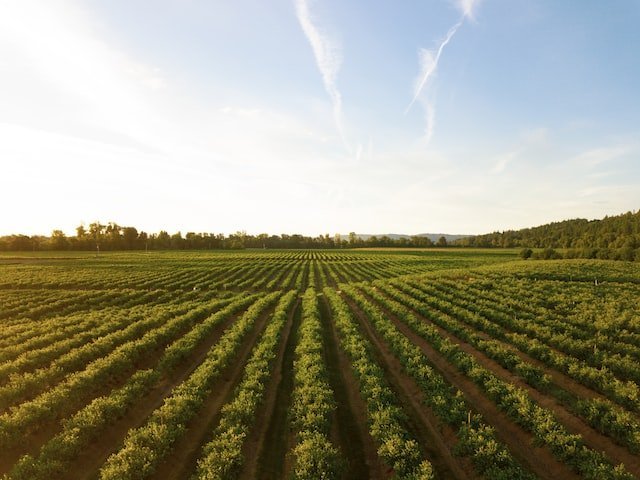
Coco, How do you think regenerative agriculture and fashion intersect with each other?

Coco: The quality of agricultural crops (whether used as raw materials or standard feed for land animals) has a direct relationship with the efficacy and durability of your clothing. Large fashion houses know this and some have already made transitions to regenerative practices to safeguard their reputations for product quality. Aside from the value garnered from having the best raw materials, regenerative fashion–the apparel-driven commodification of regenerative farming into products that embrace harmonious extraction and restoration–provides solutions to an industry that has historically been allowed to produce waste, enforce inequality, and abuse limited resources on obscene levels.

Why do you think it can revolutionize the world of fashion?

Coco: I think regenerative fashion can revolutionize the world of fashion because sustainability no longer works. We cannot sustain our current levels of pollution, consumption and carbon emissions for the earth to heal. Sustainability relies on not making matters worse. Regenerative culture is all about restoring in proportion to what is extracted. This ‘giving back’ mentality is the only way we will mend the condition of our resources.
Regenerative agriculture and fashion are not new concepts. They have actually been in practice by indigenous populations long before colonialism and we are just now beginning to embrace the value and benefits of returning to those systems.
Both of you believe in the power of community, why is that?

Joëlle: Community is the only thing we’ve ever had. I used to feel so deflated because I was hanging with the wrong crowd; I was with skeptics and cynics who believed in climate change but felt they knew too much to be hopeful. I knew there had to be a group of activists out there who also believed at their core that there was a reason to hope. After years of getting frustrated in not finding this community easily, in meeting Coco and getting to know her I realized we could build this community.
I also believed that the morale of our species was down from years of MAGA nation and brutal assaults on various ecosystems by big oil, exploitation at all costs for consumer goods etc. I knew in my own self that I was sick of this plague of despair. So, we wanted to provide relief and celebration not rooted in dispensable culture but a celebration rooted in ethical consumerism so people could have fun, guilt free, on the day of the gala. This is why our event is zero waste!

Coco: We believe in the power of community because anything is possible when a group of individuals come together with a shared vision and a goal. Hundreds of years ago we didn’t call them communities, we called them tribes. Having a tribe means having resources, guidance, family, help, and a sense of home. It gives us something to belong to, and belonging can make room for becoming.
Why do you think that it’s necessary to choose climate optimism?

Joëlle: With all the tragedy happening around the world, between Covid, the Earthquake in Turkey, the Ubiquity of Slaughterhouse farms despite their practices being archaic, the War in Ukraine, the list goes on, it goes without saying that it really is harder to find peace in the current age we are living in. But what we know is that this can lead to a mindset of believing the worst forecast is going to happen, indefinitely. More simply put, most of us have felt firsthand that this sort of heaviness can lead to paralysis, and the antidote is taking action with the earth’s best interest in mind.. Tie up all those little actions with the actions of individuals and we have built an army.

There are so many great quotes now on Hope as it is tied to Action, but I still love this classic Margaret Mead quote: never doubt that a small group of thoughtful committed citizens can change the world. indeed, it is the only thing that ever has.

Coco: I think it’s necessary to choose climate optimism because people have become numb to the doom and gloom messages perpetuated everyday on social media. Folks are tired of the guilt tactics, shaming, constant preaching, and (quite frankly) the homeliness this movement has embraced for so many years.
We have access to so much information which often gives us climate anxiety. That’s when people tune out, take breaks from social media, stop listening to what’s happening and begin to feel the need to disassociate. Instead of stressing people out about huge and often complex issues, we showcase individuals who are making innovative contributions and addressing climate concerns. I think it’s time we focus on those stories and share new narratives.

Joëlle, what message do you want to send to the viewers of your paintings that can motivate them to act for our planet?

Joëlle: Well, I paint expressive paintings about climate change and human activity here on planet A. My attempt is to create an honest first hand account of our modern age from an expressive standpoint. Some paintings involve more challenging subject matter while others do have that same depth but might not be so conceptually political, at least at surface value.
However, all of the paintings are painted from an honest standpoint and my hope is for the viewer to feel the runoff of this account, so it ignites a fire within them, a fire which will compel them to act, from the place of consumer in the time of late capitalism. Sometimes viewers might cry when looking at my work because that means I’ve stirred something within them, and this makes me happy because they’re more likely to self-reflect if they feel moved. The running joke is that I like to make people cry.

Why do you think that it’s important for consumerism to become ethical?

Joëlle: We realize that we can’t press rewind on the damage we have done to this planet, and we can’t snap our fingers back to pre-industrial modes of operating. But we can start where we are and work with what we have. Acceptance that we are married to Late Capitalism will assist us in moving forward. We can adopt a new model by pushing demand; this is where our grassroots power really comes into play. It’s exciting.
Sadly, capitalism is based on a colonialist mindset of exploitation at all costs; a product of an is versus them divide and conquer mentality. I can’t speak to all the moving parts but I know that there is a better way and I’ve seen examples of slow fashion and quality food products that are built on a model of equity in the human rights sector, animal welfare, and ecosystem restoration. Ideally these products become accessible, as there’s no need for quality and accessibility to be at war with each other. It just doesn’t seem logical to me.

Coco: In my opinion, it’s important for consumerism to embrace ethical practices so we can finally end the massive suffering and corruption our consumerism brings. I don’t say this to make people feel bad. I say this to make people aware.
Ultimately, the type of change needed must happen on political and social levels; both systems must work together to change attitudes and end long-standing structures that depend on human, animal, and environmental abuse for commercial profit. Restructuring the concept of ‘profitability’ will take time, but this shift is already happening. People are asking better questions, interested in removing barriers to transparency, and glorifying ‘slowing down’ and simplifying their desires. In 10 years no one will be talking about sustainability. It’s already an aging set of principles that will soon be completely antiquated. I’m confident we are on the precipice of change and a new wave of regenerative goods and services will continually emerge.
You mentioned “Consumer Accountability” on your website. Can you elaborate on what you mean by “Consumer Accountability” and why you think it’s important?

Joëlle: There’s a lot of weight on the consumer to make the right choices, even every time they walk into a grocery store they are forced to face these ethical dilemmas. However the flipside of this is very refreshing. We have choices. Every time we buy something we are making a choice. And We have options. We have these options even on a budget; I’ve been on a budget for most of my life and beans and rice are by far an affordable option while remaining less impactful than something like pepperoni pizza.

Coco: I think Consumer Accountability simply refers to the consumer being conscientious of their choices regarding where and how their products are derived.
However, this in no way excuses companies who reinforce means of production that are harmful, deceptive, opaque, and wasteful. Greenshifting is when companies attempt to shift the blame down or up the value chain, typically in the direction of the consumer, and should not be confused with Consumer Accountability.
While some companies try to manipulate the general public into thinking they are ultimately responsible for the inequality and pollution we experience, it is important to remember that better policies are one of the most effective ways to keep us all accountable in the long run.
How did you come up with the name “We are the general public”?

Joëlle: Oh Wow, I am so curious if this is a question Coco will also answer and if so then how! We went back and forth a ton on the name, as for me, General Public sounded too much like the 80’s American Band but also sounded like PG&E. We Are the General Public I happened to be the domain that was available for our website. I was concerned it was too long but I love it now.

Coco: Well, we definitely had a lot of ideas about what the name should be. Jo wanted it to be something elegant with the word “elevated” defined within the name. I wanted something that connoted transparency, democratization, and a sense of togetherness. After lots of weird suggestions I’m sure we’d laugh at now (because there is a list), I eventually came up with the name and shared it with Jo. She definitely needed to sit with it for a bit, but after a few days she was onboard. We decided to purchase a domain name and officially became We Are The General Public.
What’s your plan with “We Are The General Public” and the Regenerative Gala? Where do you take this in the future?

Joëlle: We’d love to create an annual regenerative gala that rotated across the United States and ideally into other countries. The Gala to us is a symbol of this movement of climate optimism that is happening in real time and I don’t think it will ever go out of fashion.
More personally, I’m hoping to address the Art Worlds impacts through our Organization We Are the General Public. I really want the art world to address materials and why they matter as well. Canvas for instance is often made from Non Organic Cotton, and cotton accounts for the bulk of the nations annual pesticide usage. This has to stop. So, I think by starting conversations about this, we can really make change. Rembrandt used to paint on Hemp and hemp is a much more sustainable option for canvas. It Just needs to become mainstream.

Coco: I feel like you’re reading my mind because I often ask myself this exact question. In order to take you forward, let me take you back. When Jo and I first connected over Instagram we were just two individual people with a lot of dreams and some crazy faith. Turns out that’s all we needed to get started.
I see We Are The General Public germinating and propagating ideas in others of what can be done when we love and trust each other’s wild ideas and ambitious goals. I see us leading individuals into regenerative lifestyles and being at the forefront of a shift we’re beginning to see–one that moves away from sustainability and towards regeneration.
Ultimately, I’d love for the Regenerative Gala to be reproduced annually in different cities throughout the U.S. My passion is to bring greater visibility to regional farmers and fibershed/watershed communities in order to help maximize local autonomy and create climate beneficial practices. But more than anything, I hope this event keeps ethical businesses relevant, in demand, and expands their customer base.
I’m a member of KIND Community, an organization headquartered in the UK that helps eco-entrepreneurs scale their businesses, and we’ve briefly discussed having a Regenerative Gala there as well! Jo and I are very excited for what’s to come.
How do you define success?

Joëlle: Oooh!!! Success is lots of money and a Huge Mansion! Just kidding. Success to me is what we are doing now but getting paid to make it our livelihood. I love the balance in my life right now of working collaboratively with all these dynamic and beautiful people, with working on my paintings. However truth be told, we have been working on this for a year, tirelessly, and we’d love to make it an annual event where our jobs become entrepreneurial and multifaceted; bringing people together and keeping the hope alive.

Coco: I define success in a totally different way than I did pre-pandemic. I think we all experienced a wake up call to what really matters as the death of extreme hustle culture took place and the wildly controversial ‘girl-boss’ era lost its appeal.
When I think about success I think about simple things like sleeping in an organic hemp or linen robe that is plant-dyed so I don’t have to worry about toxic chemicals being absorbed by my skin. I think about finding a balance between prosperity and healthy competition. Success for me is also having access to basic items like eggs, meat, or plants from regenerative, ethical and local farms where I have personal relationships with the farmers, butchers and beekeepers. It’s waking up each day and feeling closer to God than I did the day before. It’s enjoying the materials I have in life, without being too attached to them or letting them define me.
What’s your mantra for life?

Coco: The mantra for my life changes based on which ‘season’ of life I’m currently in. Right now, my mantra is: “Do it scared. Do it tired. Do it even if you’re doubting. Your goals don’t need you to be perfect. They need you to be present.”


Joëlle: My Mantra for life. I’d say it’s this mantra that life is like a garden. All gardens need tending too. We can see visibly what parts of our lives are tended to and which parts are neglected. My goal is to keep my life relatively simple so my animals at home, my husband, my art, and now the gala can all be tended to with care.
There’s a quote from the film LadyBird where Lady Bird is told by a Nun that love and attention are from the same cloth. She explains that if you are paying attention to something that this is a form of love. I guess I feel like in my lifetime I want to make sure I have loved enough, by tending to what is around me, like a garden.

Believe it or not, the future is regenerative.
And by reducing our impact on the environment, it is possible to create a world that is healthier, more resilient, and more equitable for all. It is really up to us to make it a reality. With the increasing awareness of the negative impact that human activities have on the environment, has been a growing movement towards regenerative practices. And you can join the movement too!
How can you join the Regenerative Gala?
You can find all details along with your tickets to the Regenerative Gala happening on April 1, 2023 at www.wearethegeneralpublic.com.
